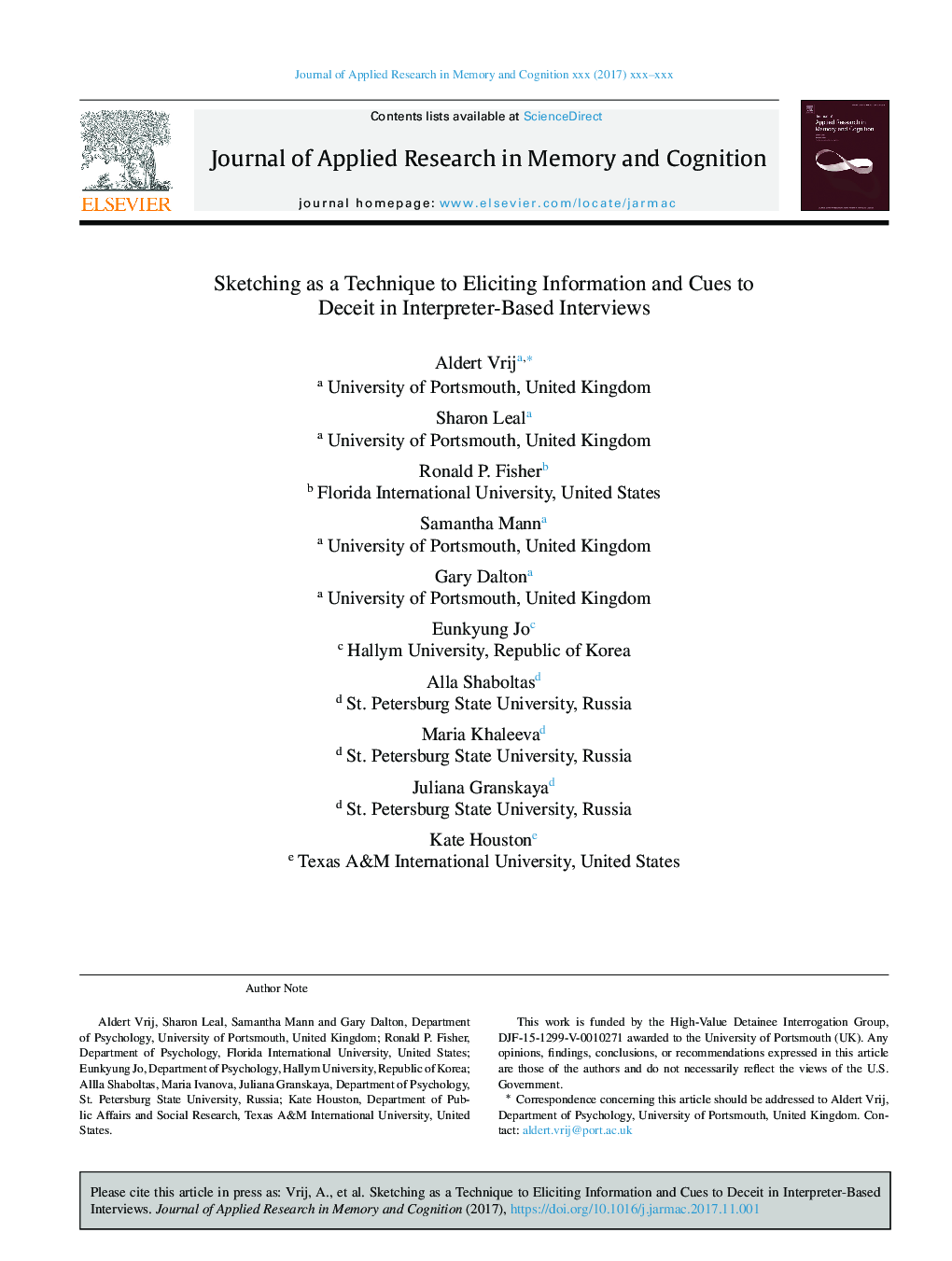| Article ID | Journal | Published Year | Pages | File Type |
|---|---|---|---|---|
| 7241643 | Journal of Applied Research in Memory and Cognition | 2018 | 11 Pages |
Abstract
We tested the effect of sketching while providing a narrative on eliciting information, eliciting cues to deceit, and lie detection in interpreter-absent and interpreter-present interviews. A total of 204 participants from the USA (Hispanic participants only), Russia, and the Republic of Korea were interviewed in their native language by native interviewers or by a British interviewer through an interpreter. Truth-tellers discussed a trip they had made; liars fabricated a story about such a trip. Half of the participants were instructed to sketch while narrating; the other half received no instruction. Sketching resulted in more details provided. It also elicited cues to deceit: complications and new details differentiated truth-tellers from liars in the Sketching-present condition only. Liars and truth-tellers were more correctly classified in the Sketching-present than in the Sketching-absent condition. More complications and more common-knowledge details were reported without than with an interpreter.
Related Topics
Social Sciences and Humanities
Psychology
Applied Psychology
Authors
Aldert Vrij, Sharon Leal, Ronald P. Fisher, Samantha Mann, Gary Dalton, Eunkyung Jo, Alla Shaboltas, Maria Khaleeva, Juliana Granskaya, Kate Houston,
